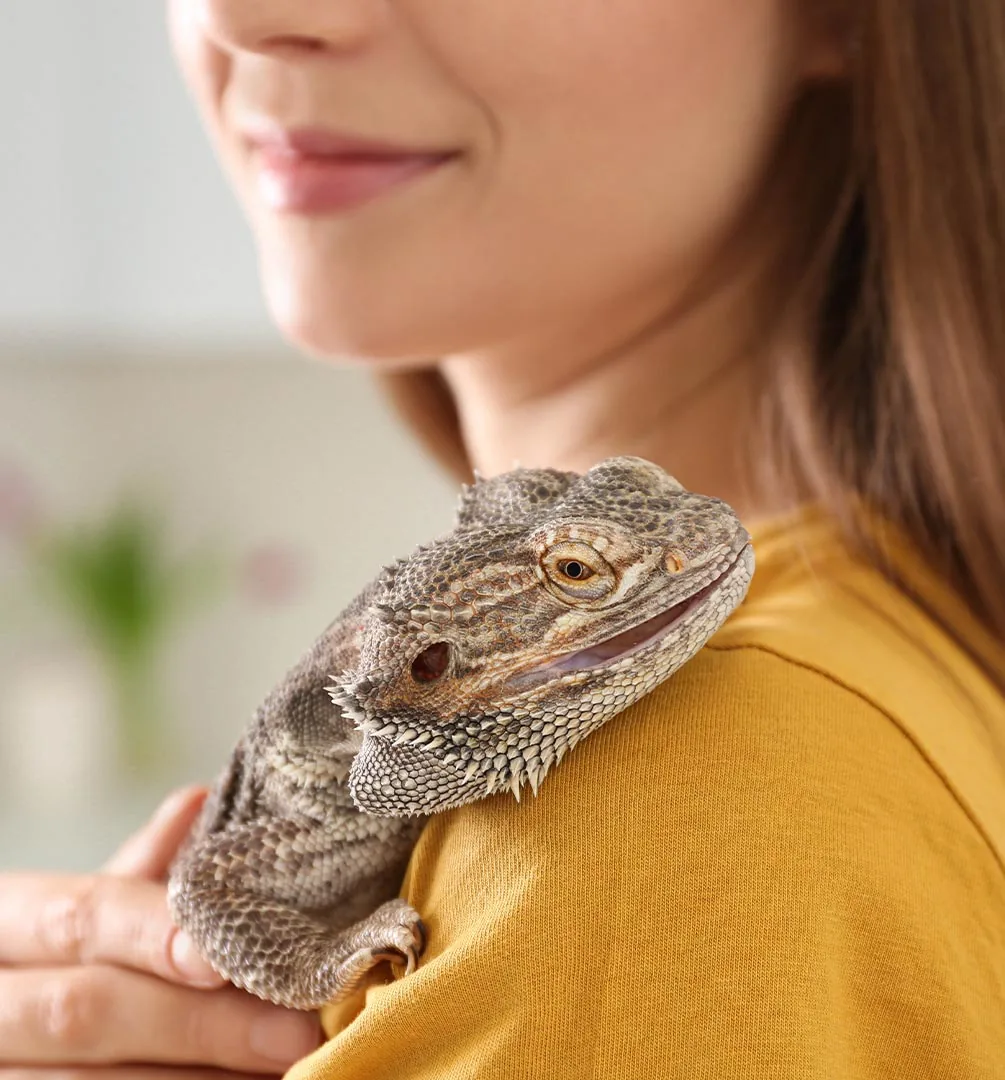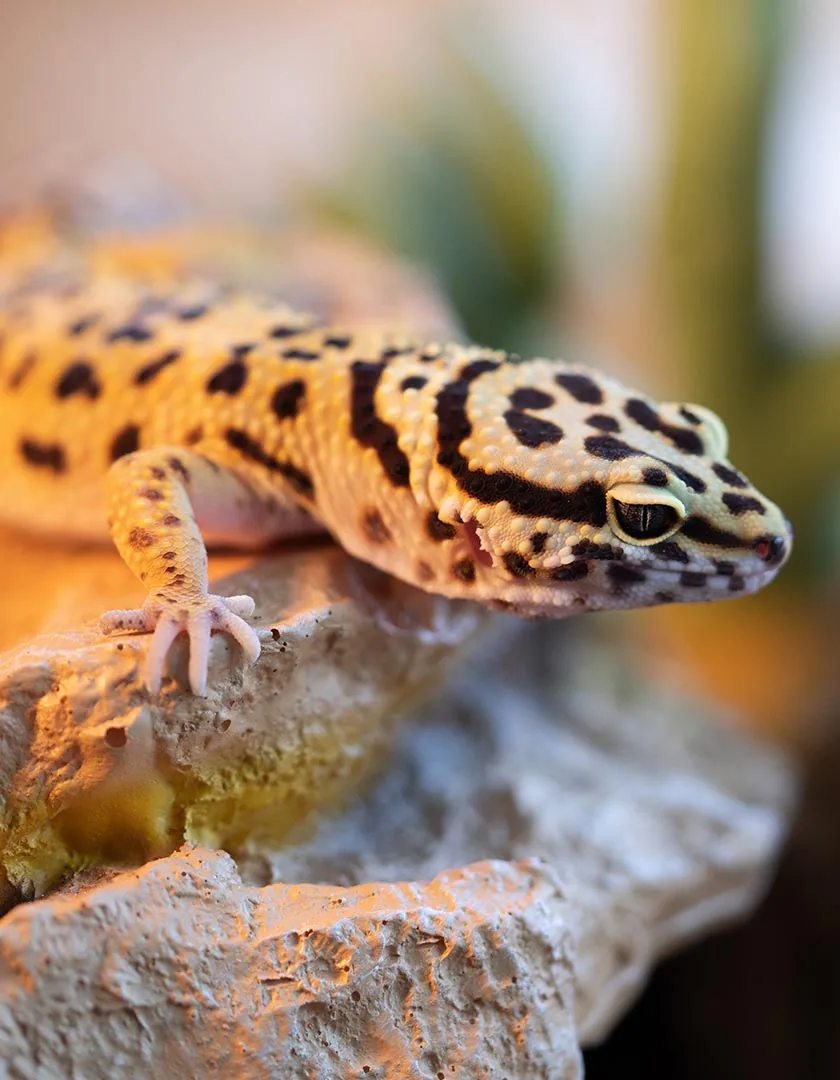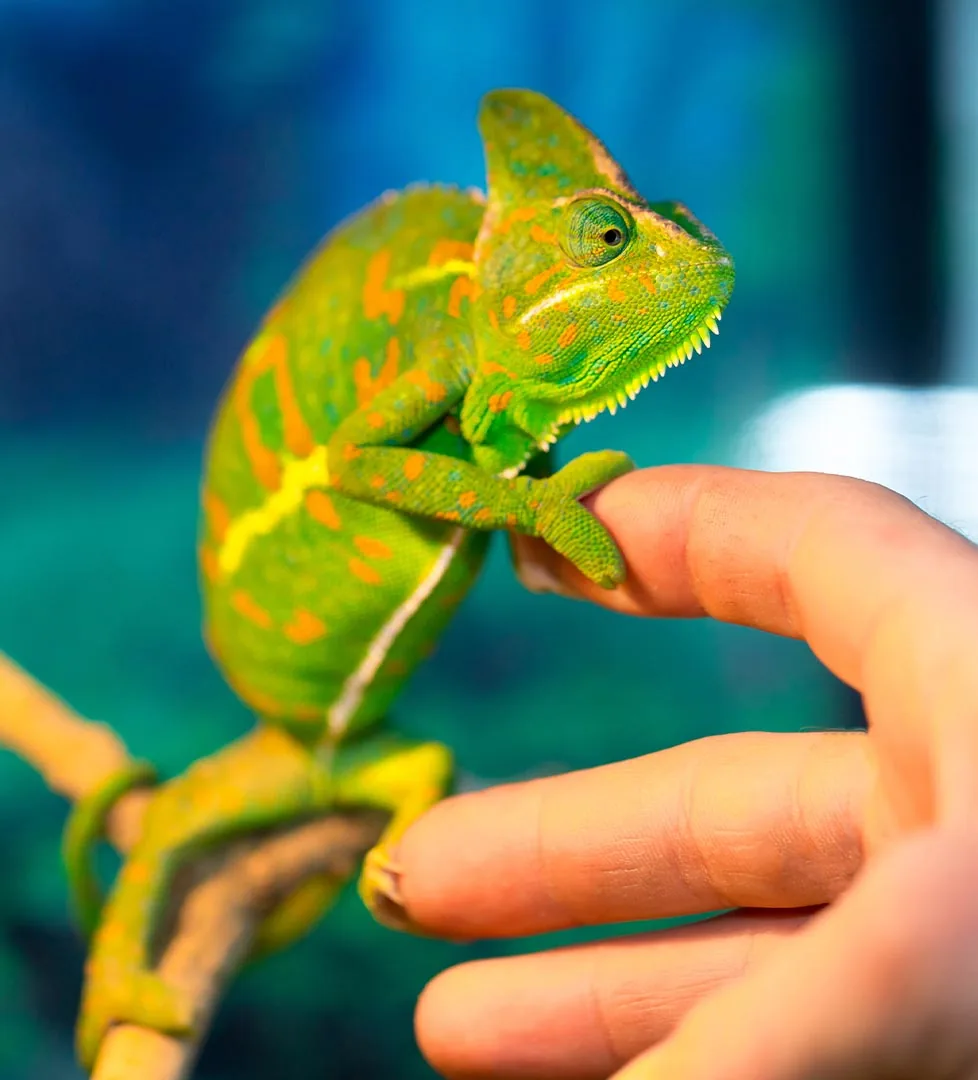
Reptile Care in Parrish, FL
Reptiles make fascinating pets with unique personalities, but their needs are very different from those of cats or dogs. From habitat temperature to specialized diets, reptiles require consistent, attentive care to stay healthy. Whether you’re new to reptile ownership or a long-time keeper, here’s what you need to know to help your scaly friend thrive!
Contact us today to schedule your reptile’s wellness care visit (Recommended Bi-annually). If you have questions, call us at (941) 216-2335!
Creating the Right Habitat for Your Reptile
Your reptile’s enclosure is their entire world, so it must be set up correctly from the start. Depending on the species, you’ll need to pay close attention to:
Heating & lighting
Provide appropriate basking spots, cool areas, and UVB lighting to mimic natural conditions.
Humidity control
Many reptiles rely on specific humidity ranges for proper shedding and respiratory health.
Safe substrate
Use a flooring that’s safe and easy to clean; avoid loose substrates that can cause impaction.
Hides & enrichment
Every reptile needs secure places to retreat as well as climbing structures, branches, or rocks for activity.
Cleanliness is critical. Spot-clean daily and do a deep clean of the enclosure regularly to prevent bacteria and parasites.

What Should Reptiles Eat?
Reptile diets vary widely depending on species — some are carnivores, some herbivores, and others omnivores. A few general guidelines include:

Insectivores (like geckos and young bearded dragons)
Offer gut-loaded crickets, mealworms, and roaches dusted with calcium.
Herbivores (like iguanas and tortoises)
Provide a variety of leafy greens and vegetables, avoiding iceberg lettuce and high-oxalate foods.
Omnivores (like some lizards and turtles)
A balance of insects, leafy greens, and vegetables works best.
Never feed wild-caught insects
They may carry parasites or pesticides.
Fresh water should always be available, whether in a shallow dish or through misting, depending on the reptile’s needs.
